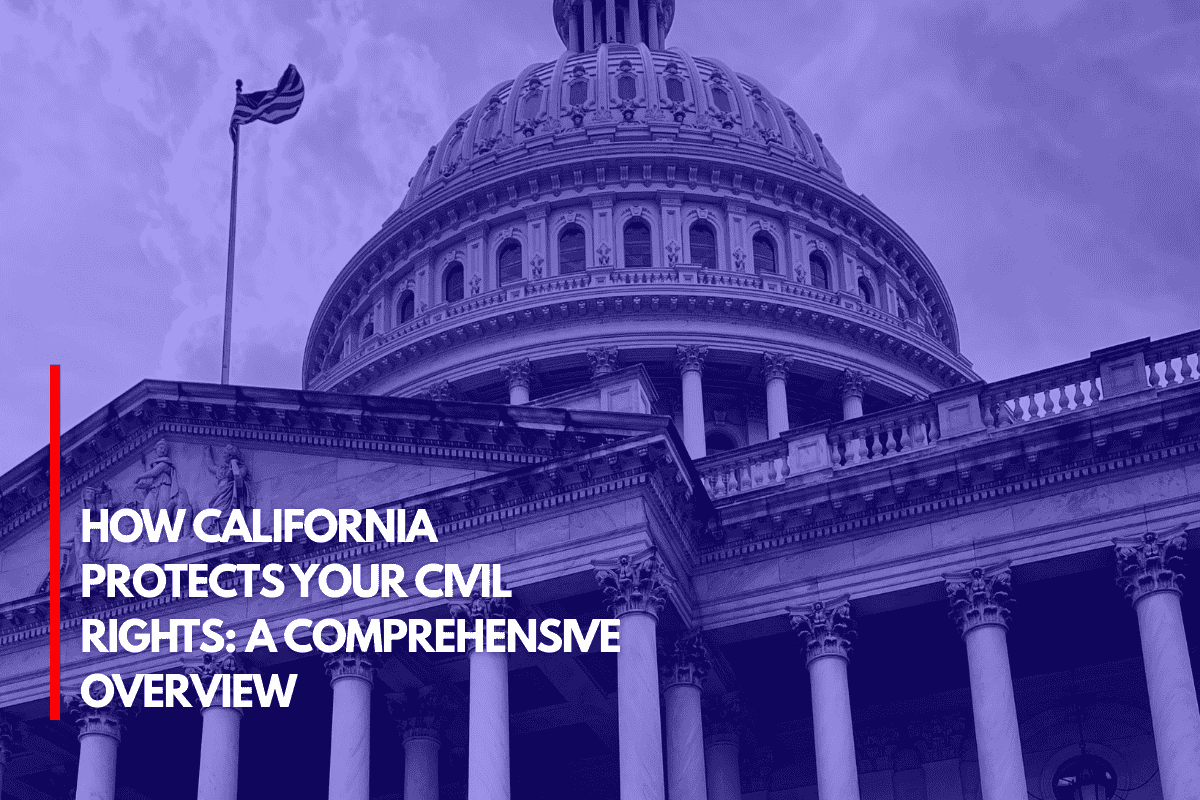The Civil Rights Department (CRD), the state’s main organization in charge of upholding civil rights laws, provides strong protections for Californians.
In addition to safeguarding people against hate crimes and human trafficking, the CRD strives to stop illegal discrimination in a number of contexts, such as employment, housing, commercial establishments, and state-funded initiatives.
The CRD receives civil rights complaints directly from anyone and, if required, investigates, mediates, and prosecutes cases.
Major Protected Areas
Laws in California prohibit discrimination on the basis of a number of factors, such as:
Race (including racialized hairstyles and textures)
Gender
Sexual orientation
Religion (including the appearance and attire associated with religion)
Incapacity
Age
Family History
Additional protected traits
Employers must provide employees with reasonable accommodations for their disability and religious beliefs. Employers are also required to disclose information regarding:
Sexual harassment
Whistleblower safeguards
Employees’ access to legal remedies
Additionally, California offers extra safeguards for jury duty, court appearances, crime-victimized employees, and whistleblowers. Individuals exercising their rights cannot be subjected to retaliation.
Increased rights for independent contractors and freelancers
Banson’s required captive audience meetings (those pertaining to religious or political matters)
Greater leave benefits for workers who help victims of crime or serve on juries
Regulations governing automated decision systems to prevent AI-based recruiting or personnel discrimination (effective October 2025)
Additionally, the CRD upholds anti-discrimination legislation in housing, such as:
Avoiding discrimination on the basis of protected characteristics when renting, leasing, selling, or acquiring housing
Fair accommodations for people with impairments
Treating everyone equally, regardless of immigration status
To guarantee that everyone has equal opportunity in public areas, California laws forbid companies and government initiatives from refusing services or access on the basis of protected categories.
Every program that receives funding or sponsorship from the state must adhere to civil rights protections and offer equal access and treatment.
Protecting victims of hate crimes, threats, and human trafficking is the main goal of special units, which also offer victims vital resources and counsel.
Expanded and Notable Protections for 2025
Consumer opt-out rights have been expanded by updates to the California Consumer Privacy Act (CCPA), which mandate that browsers offer a single opt-out alternative by 2026.
less paperwork needed to qualify for leave, and more rights to take time off for a wider variety of family interactions.
Laws against discrimination can now be enforced locally as long as the proper procedures are followed. This makes local remedies for discriminating victims stronger.
Laws now specifically prohibit discrimination based on racial characteristics, such natural hairstyles, and intersectional discrimination, which is discrimination based on a mix of protected characteristics.
Independent contractors and freelancers now have official contracts and guaranteed on-time payments, protecting their professional rights.
Enforcement and Support
The CRD is in charge of looking into and resolving complaints. It frequently helps parties reach agreements and, when required, starts legal action.
In order to raise awareness and support for civil rights protections, the CRD works with schools and universities to offer outreach, training, and bystander training materials.
Residents have the right to lodge complaints if they are subjected to improper treatment. Employers and other organizations are required by state law to give individuals comprehensive notices about their rights.
References:












